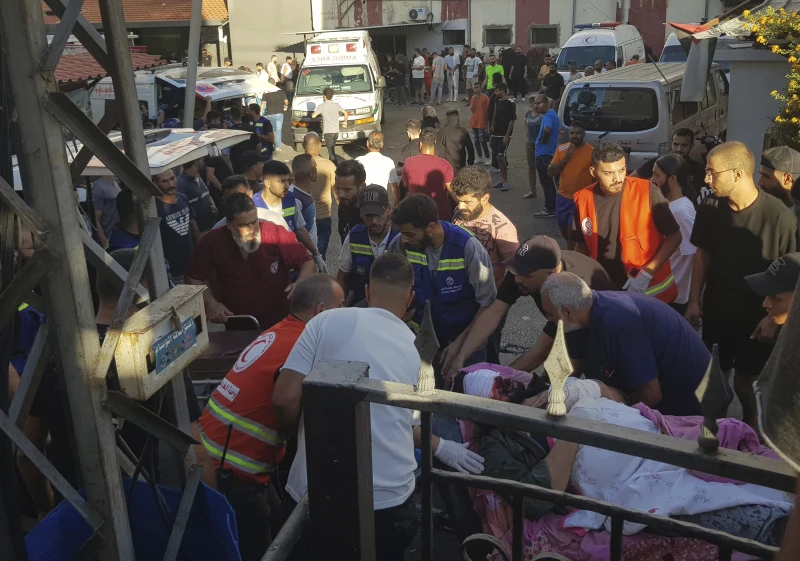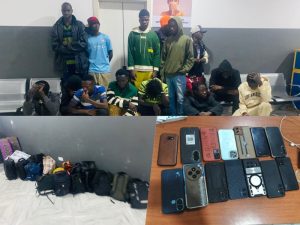Gambiaj.com – BEIRUT, Lebanon — A series of new explosions rocked Beirut and other parts of Lebanon on Wednesday, killing at least 20 people and injuring more than 450, in what appears to be a second wave of attacks targeting devices used by Hezbollah. The incidents occurred just a day after pagers linked to the militant group detonated, resulting in widespread casualties, the Lebanese Health Ministry reported.
The blasts, which are widely believed to be the result of Israeli actions targeting Hezbollah, have further fueled fears that the ongoing conflict could spiral into a full-scale war. The devices, including walkie-talkies and solar equipment, exploded in various locations, causing significant destruction and panic among civilians.
Speaking to Israeli troops on Wednesday, Israeli Defense Minister Yoav Gallant hinted at the escalation without directly acknowledging the attacks. “We are at the start of a new phase in the war — it requires courage, determination, and perseverance,” Gallant said, lauding the efforts of Israel’s military and security agencies.
Several explosions were reported at a funeral in Beirut for three Hezbollah members and a child killed in Tuesday’s pager explosions. The Associated Press observed significant damage in the southern city of Sidon, where a car and a mobile phone shop were impacted by the blasts. A girl was also injured in the south when a solar energy system exploded inside her home, according to the state news agency.
The previous day’s attacks, which resulted in at least 12 deaths and wounded around 2,800, targeted pagers used by Hezbollah members. The devices, however, exploded indiscriminately, leading to numerous civilian casualties as they went off in homes, cars, grocery stores, and cafes, often with bystanders nearby. Many victims were not combatants but were affiliated with Hezbollah’s extensive civilian network serving Lebanon’s Shiite community.
The U.N. High Commissioner for Human Rights, Volker Türk, has called for an independent investigation, stating, “The fear and terror unleashed is profound.” The attacks have raised serious legal and ethical concerns. Mary Ellen O’Connell, a professor of law and international peace studies at the University of Notre Dame, emphasized that weaponizing civilian objects is strictly prohibited under international law.
Hezbollah, which has been exchanging fire with Israel since early October, retaliated with three strikes on northern Israel on Wednesday, as its leader Hassan Nasrallah prepared to deliver a significant address. Tensions have been high since a Hamas-led assault in southern Israel triggered the current conflict, leading to casualties and displacements on both sides of the Lebanese-Israeli border.
The apparent targeting of pagers has drawn attention to the sophisticated nature of the operation, believed by many to have involved Israeli infiltration of supply chains to rig the devices with explosives before they were brought into Lebanon. However, concrete evidence is still lacking.
In the wake of the attacks, Lebanon is grappling with the human toll and the psychological trauma inflicted on its populace. Thousands attended funerals across the country on Wednesday, mourning the loss of loved ones. In the village of Nabi Sheet in the Bekaa Valley, dozens gathered to bid farewell to 9-year-old Fatima Abdullah, another victim of the explosions, her grieving mother clutching a yellow Hezbollah scarf.
The situation remains precarious as Israeli military officials hinted at further actions. The U.S., meanwhile, is assessing how these developments could impact efforts to negotiate a ceasefire in the Israel-Hamas conflict. For now, Lebanon is left counting the cost of a brutal and escalating confrontation, with no end in sight.










